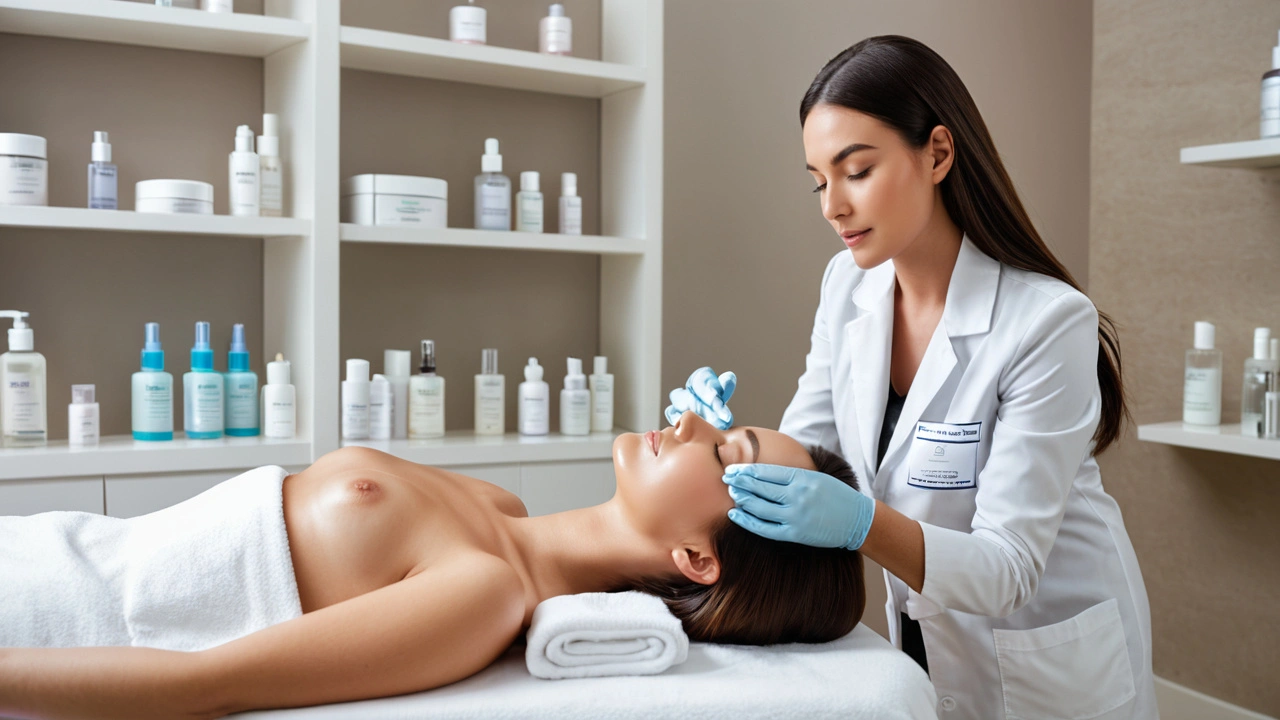Acne solutions: practical treatments you can try today
Tired of breakouts that keep coming back? Acne isn’t just frustrating — it can hurt your confidence. This page gives clear, no-nonsense advice: what works over the counter, when to ask for a prescription, and simple routine fixes that actually help.
First, know your acne. Blackheads and whiteheads are "non-inflammatory" and often respond well to exfoliating acids. Red bumps, pustules, and deeper nodules are inflammatory and usually need stronger treatment. Match the treatment to the type of acne you have — that saves time and side effects.
Over-the-counter fixes that really work
Benzoyl peroxide kills acne bacteria and reduces inflammation. Start with 2.5% to 5% once daily and increase if your skin tolerates it. Salicylic acid (0.5–2%) helps unclog pores — great for blackheads. OTC adapalene (a mild retinoid) speeds cell turnover and prevents new spots; use it at night and expect irritation at first.
Don’t pile on everything at once. Try one product for 6–8 weeks before adding another. Patch-test new products on your jawline for a few days. If you get bad redness or burning, stop and try something gentler.
Prescription options and when to choose them
See a dermatologist if over-the-counter options don’t help after two months, or if you have painful cysts. Topical prescriptions combine retinoids with antibiotics or benzoyl peroxide for stronger control. Oral antibiotics can reduce inflammation short-term but should be limited to a few months to avoid resistance.
For hormonal acne, combined birth control pills or spironolactone work well in people who can take them. Isotretinoin is the most effective for severe or scarring acne, but it requires strict monitoring and pregnancy prevention because of serious risks.
Always follow medical advice and testing schedules with prescription meds. That keeps treatment safe and effective.
Build a simple daily routine: gentle cleanser twice a day, a lightweight non-comedogenic moisturizer, and sunscreen each morning. Many acne treatments dry the skin, so a good moisturizer prevents irritation and helps products work better. Avoid abrasive scrubs and harsh alcohol-based toners — they make acne worse.
Small lifestyle changes matter. Try reducing high-glycemic foods and limiting dairy if you notice flare-ups after eating them. Manage stress, get enough sleep, and wash pillowcases and hats regularly. Don’t pick or pop pimples — that raises the chance of scars and infection.
If cost is a concern, licensed Canadian pharmacies can offer affordable options. Always use a reputable pharmacy, keep prescriptions for prescription meds, and avoid sites that sell without a prescription.
If your acne won’t clear or it’s leaving marks, book a dermatologist visit. A targeted plan early on prevents scarring and saves time in the long run.

The Ultimate Guide to Chemical Peels for Acne Treatment
Chemical peels can be a game-changer for those battling acne. This article dives into what chemical peels are, their benefits, types, and what to expect during and after the treatment. You'll also learn about potential side effects and aftercare tips to ensure you get the best results.
Read more